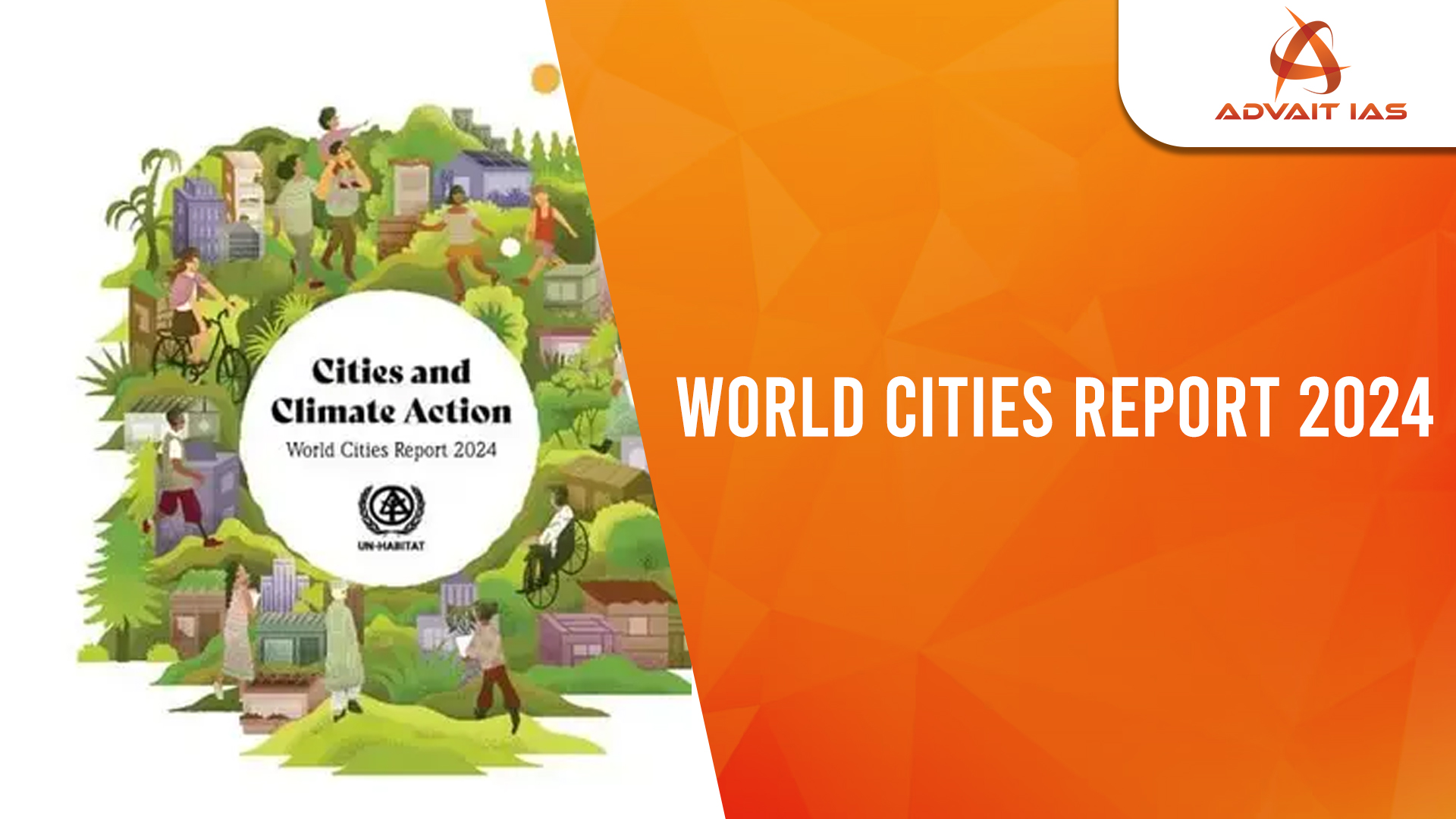UN-Habitat released the World Cities Report 2024 highlighting the critical role of cities in climate change.
Key Findings
- Temperature Increases
- By 2040, nearly 2 billion urban residents will experience a 0.5°C rise.
- 14% of cities may face drier climates; 900 cities could see more humid conditions.
- Sea-Level Rise
- Over 2,000 coastal cities (under 5m elevation) will expose 1.4 billion people to higher risks.
- Disproportionate Impact
- Cities face greater climate shocks (floods, cyclones) while contributing significantly to GHGs.
- Investment Gap
- Estimated annual need: USD 4.5–5.4 trillion; current funding: USD 831 billion.
- Flood Exposure
- Urban flood risk grew 3.5x faster than rural areas since 1975.
- By 2030, 517 million city dwellers (14% of global urban population) may face riverine flooding.
- Declining Green Spaces
- Urban green space dropped from 19.5% (1990) to 13.9% (2020), worsening environmental and social challenges.
- Informal Settlements & Green Gentrification
- Slums increase vulnerability to climate impacts.
- Green gentrification displaces underprivileged communities.
Urban Contributions to Global Warming
- Energy Use: 71–76% of CO2 emissions linked to industries, transport, and dense buildings.
- Land Use Changes: Urban sprawl triples by 2050, causing deforestation.
- Waste Generation: Landfills emit methane, a potent GHG.
- Urban Heat Islands: Heat retention in cities exacerbates warming.
Impacts on Cities
- Heatwaves: Intensified, e.g., severe occurrences in India.
- Coastal Flooding: Rising seas disrupt ecosystems and displace communities.
- Wildfires: Longer and intense wildfire seasons due to warming and drought.
Way Forward
- Resilient Infrastructure: Design systems to reduce GHGs and withstand climate impacts.
- Green Energy: Electrify public transport and adopt EVs.
- Diverse Financing: Climate loans and green bonds bridge funding gaps.
- Urban Carbon Sinks: Invest in green roofs, urban forests, and compact city planning.
- Circular Waste Management: Promote recycling and composting.
- Whole-of-Society Approach: Coordination across government and sectors for inclusive action.
- Strengthen Local Capacities: Tailored solutions addressing local challenges.
The report emphasizes the urgency for cities to combat climate change by adopting resilient infrastructure, green energy, and sustainable urban planning while addressing funding and inclusivity challenges.






